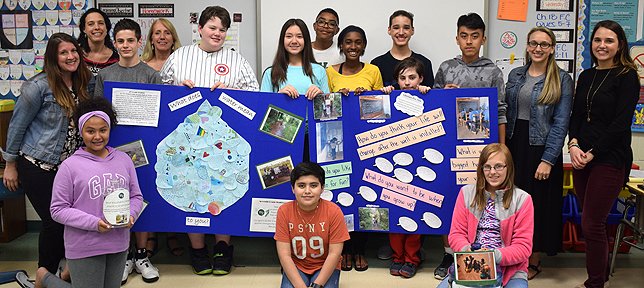Moriches, NY - June 9, 2017 - For the second consecutive year, William Floyd Middle School students are helping provide a clean water source for a community in Johnson Township, Liberia, through Strides for Africa. The students raised $689 through various fundraisers including collecting “spare change to make change” during lunch periods, creating mini wells out of water bottles to provide a visual of the project’s needs to family and friends and a movie fundraiser.
William Floyd Middle School partnered with the Mount Sinai School District ($633 raised) and a district in Wisconsin to raise the funds necessary to drill the well, which will benefit the community of Pamkpar Town in Upper Johnsonville, Liberia, as well as the Fountain of Life daycare, elementary and junior high schools.
This project was inspired by the book A Long Walk to Water by Linda Sue Park, which details the struggles that people in third-world countries face in order to get clean water.
“Students were touched by the issue and wanted to find a way to help,” said Jessica McHale, William Floyd Middle School English teacher. In addition to raising money for the project, students made a personal connection through “pen pal” correspondence. “Our students really enjoyed learning more about their lives in Africa,” said Ms. McHale. Seventh-grade English teachers Jodi Judson, Cindy Franck and Christine Smith were also involved in this project.
“I wish to extend my sincere gratitude to your respective school fundraising efforts on the well at Fountain of Life School in Johnsonville, Liberia,” said Chris Jimieson, Strides for Life organizer. “Without your efforts, the students at this school and the citizens of the surrounding community would have water sources vulnerable to waterborne diseases.”










